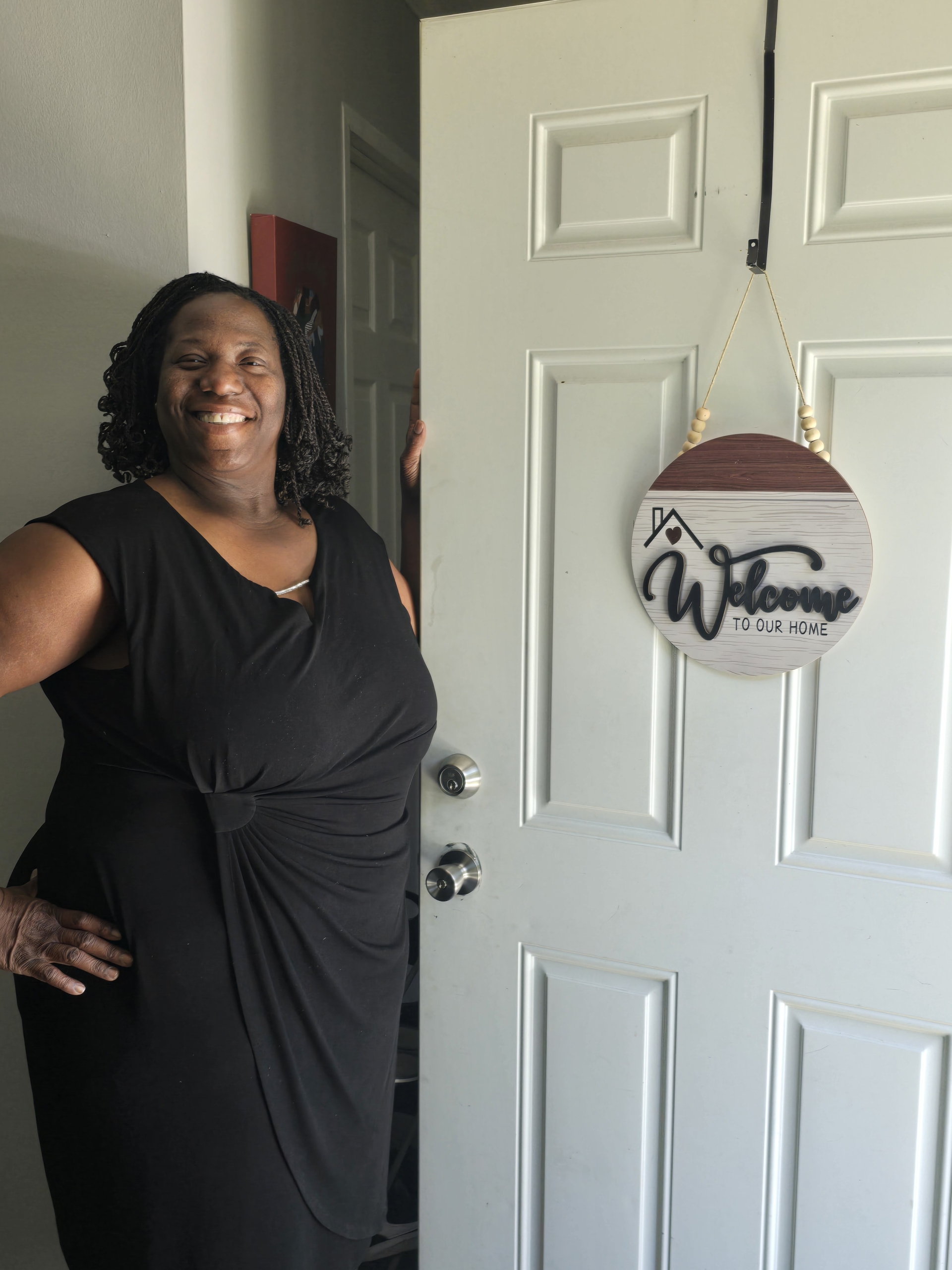
Teaching Assistant Fulfills Homeownership Goal Through Moving to Work Program

Petric Handy was living in an apartment complex in Selbyville with her four children when she heard from friends about the benefits of a Delaware State Housing Authority (DSHA) affordable housing program.
Those friends lived in Hickory Tree Village, a public housing community in Selbyville managed by DSHA. They had purchased homes after successfully completing the Moving to Work (MTW) program required of most residents. With a dream of one day owning her own home, Petric took them up on their suggestion to apply.
By participating in the MTW program, which is mandatory for most DSHA public housing residents and Section 8 Housing Choice Voucher (HCV) holders, DSHA creates an escrow account on behalf of each MTW participant as an incentive to increase their income. As a participant increases their income through employment, their rent increases. That provided Petric a nest egg to buy a home. Hickory Tree Village also offered a more spacious apartment for her and her children while she pursued her goal. (Unless an individual is considered elderly or disabled, all of DSHA’s public housing and HCV holders are required to participate in the MTW program.)
Three months after applying, Petric was offered a unit in Hickory Tree Village. The family moved in March 2018, and her journey began. Another requirement of the program is employment or enrollment in an educational course or training program that leads to employment. That wasn’t an issue for Petric, who worked full-time as a paraprofessional with the Indian River School District.
Important to Petric was the work incentive provided to MTW participants: their rent is capped at 35 percent of their adjusted monthly income, not to exceed $350 per month. As participants’ income increases, their rent increases, but the amount they pay over $350 is put into the escrow account.
After five years, if an MTW participant’s income increases enough to enable them to pay fair-market value rent, they transition out of MTW’s Tier 1 and are eligible to receive the entire escrow account, although 60 percent of it must be used to purchase a home or pay fair-market rent. The remaining 40 percent may be used for other housing-related expenses. If their income has not increased enough to pay fair-market rent within five years, they may stay in the program for another two years (MTW’s Tier 2), but they will receive only 60 percent of the escrow account when they leave the program.
Petric stayed in the program through the COVID-19 pandemic and weathered the challenges it presented. By August 2024, as a Tier 2 participant, she was ready to buy a home. In preparation, she worked with a NeighborGood Partners housing counselor to strengthen her credit score and with DSHA case manager Stephanie Gray, who provided Petric with advice and guidance about DSHA homeownership programs, as well as other funding sources for which she was potentially eligible.
“Stephanie was amazing,” Petric says.
Petric’s realtor, Regina White of Crowley Associates Realty, was also helpful, teaming up with Stephanie to provide Petric with the resources she needed to keep her on track as she got closer to her goal of purchasing a home.
“I had the right people helping me,” Petric says.
In addition, Petric knew from past contact with First State Community Action Agency, a nonprofit community development organization that helps Delawareans with housing needs, that she might be eligible for a grant from the Sussex County Housing Trust Fund to cover much of her down payment and closing costs. First State Community Action Agency administers the Trust Fund and the homeownership course that Petric needed to take to receive the grant. She completed the course and received a $20,000 grant, which is forgivable after 10 years if she stays in the house for that amount of time.
In June 2025, Petric made an offer on a three-bedroom, two-bathroom home in Frankford, and closed on the house on July 31. In addition to a DSHA Smart Start mortgage from Tidewater Mortgage Services and the $20,000 grant, Petric used what remained in the MTW escrow account for housing expenses.
Petric says she is happy that her 12-year-old twins now have a yard to play in and “I can cut my own grass.” With pride, she adds, “I’m the first in my immediate family to purchase a home.”
A person of great faith, Petric credits divine guidance in her journey to homeownership, saying “God did this.”
Petric’s advice to anyone graduating from the MTW program and buying a home is simple: “Don’t give up. It can be frustrating, but when it’s your time and with God’s help, it will happen.”





